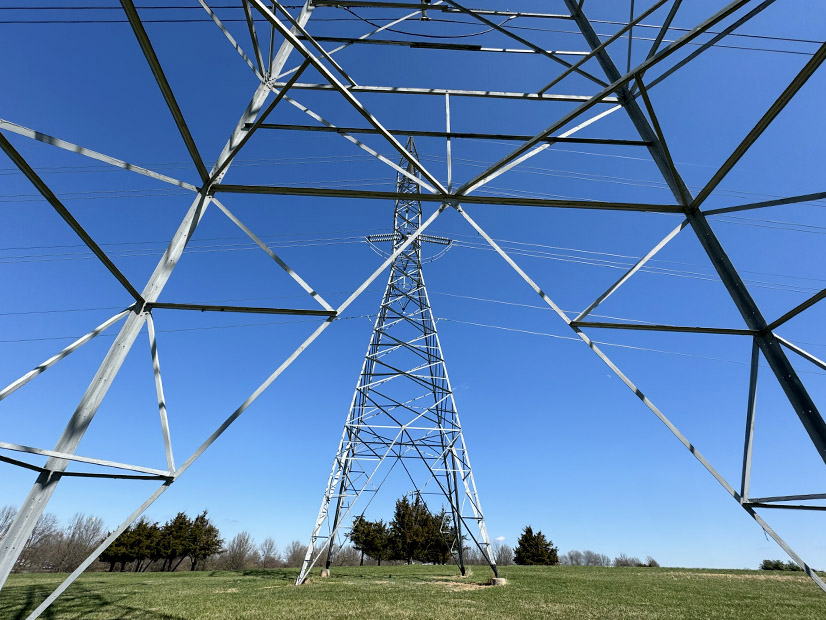FERC has approved ISO-NE’s proposal of a new process to solicit, select and allocate costs for transmission projects that address needs identified in long-term planning studies (ER24-1978).
Developed in coordination with the New England States Committee on Electricity, the new process establishes a regionalized cost-allocation method for transmission projects that are projected to bring long-term net benefits to the region. (See NEPOOL TC Approves Process for States’ Transmission Needs.)
FERC Chair Willie Phillips and Commissioner Mark Christie concurred with the July 9 order in separate statements. Phillips commended the proposal and wrote that it does not conflict with Order 1920. Christie applauded the central role of the states within the proposal and contrasted it with Order 1920, which he argued needs “major revisions.”
The approval marks the completion of Phase 2 of ISO-NE’s longer-term transmission planning project; Phase 1 created a process to evaluate long-term transmission needs associated with state policies and mandates and was approved by FERC in 2022 (ER22-727).
In the new process, NESCOE can direct ISO-NE to issue a request for proposals for solutions to long-term needs. After soliciting proposals, ISO-NE will select a preferred solution, and NESCOE will have the option to either proceed with the default regionalized cost allocation method, submit an alternative cost-allocation method or terminate the process.
For projects to be eligible for selection, ISO-NE’s analysis must indicate the quantified benefits of the project outweigh its costs.
FERC also approved a supplemental process the states can use if no proposal exceeds the cost-benefit test, allowing one or more states to cover any costs of a project that exceed this cost-benefit threshold.
FERC wrote that the tariff changes “represent a just and reasonable alternative voluntary process that will not conflict with or otherwise replace ISO-NE’s Order No. 1000 regional transmission planning process.”
While the comments submitted to FERC on the proposal largely were supportive, some stakeholders argued the requirement for proposals to be complete — not reliant on any additional transmission upgrades from incumbent transmission owners not included in the proposal — equates to a de facto right of first refusal. (See Stakeholders Support ISO-NE Long-term Tx Planning Filing, with Caveats.)
FERC ultimately rejected arguments by clean energy trade groups and merchant transmission developers that the new process would give an unfair advantage to incumbent transmission owners.
Since the process is supplemental to ISO-NE’s regional transmission planning process required by Order 1000, it “need not comply with the nonincumbent transmission developer reforms established in Order No. 1000, including the requirement to eliminate any federal right of first refusal,” FERC wrote.
At the request of ISO-NE, FERC also directed the RTO to submit an additional filing to fix errors in the original submission.
Phillips wrote in his concurrence that the new process is not in conflict with Order 1920 and that it “includes many of the significant components of Order No. 1920, such as multifactor planning on at least a 20-year time horizon, an ex ante default cost allocation method, the option for states to agree on alternative cost allocation methods and the option to voluntarily pay for the portion of a project that exceeds the identified benefit-cost ratio.”
Meanwhile, Christie used his concurrence to draw a contrast between ISO-NE’s proposal and the requirements of Order 1920, which he opposed. (See FERC Issues Transmission Rule Without ROFR Changes, Christie’s Vote.)
“The state role in this proposal is utterly contrary to the insufficient one allowed in Order No. 1920, which does not require that states consent to planning and selection criteria, does not require that states consent to an ex ante cost allocation formula, and does not even require that transmission providers have to file a state-agreed alternative to an ex ante formula,” Christie wrote.
Christie noted the strong state support for the proposal and argued it eventually could be undercut by the requirements of Order 1920, which is on track to “force all projects, including public policy related projects, into the same bucket with other types of projects for planning and cost allocation purposes.”
Christie concluded that the proposal “is the type of planning and cost allocation construct for public policy projects that the commission should encourage and approve,” and called for reforms to Order 1920.




